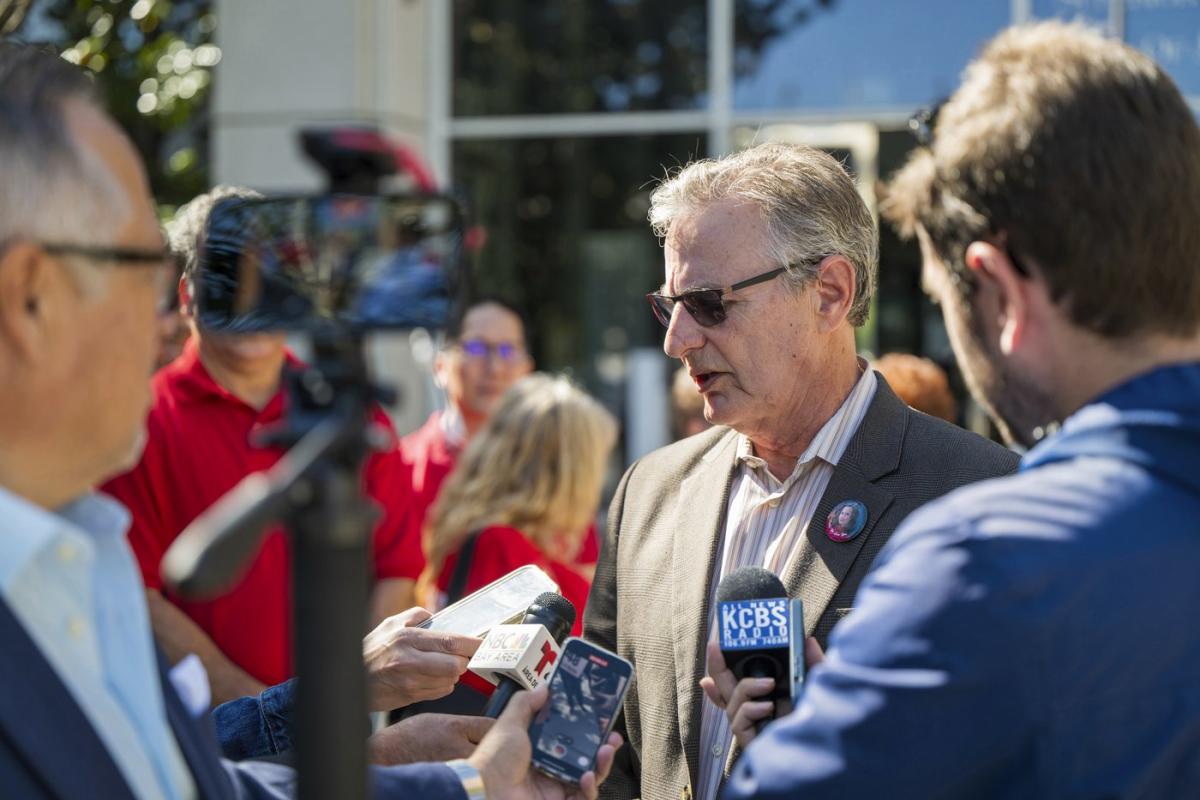Sports
Judge denies petition to recall death sentence of man who killed 12-year-old Polly Klaas

SAN JOSE, Calif. (AP) — A California judge on Friday denied a petition to recall the death sentence against Richard Allen Davis, who in 1993 killed 12-year-old Polly Klaas after kidnapping her from her bedroom at knifepoint in a crime that shocked the nation.
Jurors in 1996 found Davis guilty of first-degree murder and of the “special circumstances” of kidnapping, burglary, robbery and attempting a lewd act on a child. Davis was on parole at the time of the child’s abduction and killing and had an extensive kidnap and assault record going back to the 1970s. He was sentenced to death.
Davis’ attorneys argued in a February court filing that his death sentence should be recalled because of recent changes to California sentencing laws that eliminate some sentencing enhancements. They also noted California’s current moratorium on the death penalty. In 2019, California Gov. Gavin Newsom placed a moratorium on executions, calling the death penalty “a failure” that has discriminated against defendants who are mentally ill, Black and brown, or can’t afford expensive legal representation.” A future governor could change that policy.
Sonoma County District Attorney’s Office said in a court filing that Davis’ attorneys’ arguments are “nonsensical” and that the laws they are citing don’t apply to Davis’s death sentence for Polly Klaas’ murder.
On Friday, Sonoma County Deputy District Attorney Sarah Brooks told the court that Davis’ attorneys were wrongly citing a law enacted in 2022 that allows reassessing the sentences of some people whose punishments were influenced by special enhancements. She said their petition was a “collateral attack on the 1996 conviction and sentence to death.”
Judge Benjamin Williams agreed and denied their petition. He said that rather than asking for Davis to be resentenced, prosecutors were trying to vacate the punishment phase of the trial. Davis was not present during the hearing.
Marc Klaas, Polly Klaas’ father, gasped as the judge announced his decision. He was in the courtroom with about a dozen supporters wearing buttons with Polly Klaas’ photo or red T-shirts with the Klaas Kids Foundation logo. He said he was relieved and grateful to prosecutors and the judge.
“Our judge and our prosecutor were so decisive in their arguments and in their decision that there’s really no place for this guy to go except to hell, of course,” Marc Klaas told reporters after the hearing.
Davis kidnapped Polly Klaas from her bedroom in Petaluma, 40 miles (64 kilometers) north of San Francisco, in October 1993 and strangled her to death. That night, she and two friends held a slumber party and her mother slept in a nearby room. The girl’s disappearance touched off a nationwide search by thousands of volunteers. Davis was arrested two months later and led police to the child’s body, which was found in a shallow grave 50 miles (80 kilometers) north of her home in Sonoma County.
The case was a major driver behind California’s passage of a so-called “three strikes” law in 1994 that set longer sentences for repeat offenders. Lawmakers and voters approved the proposal.
California hasn’t executed anyone since 2006, when Arnold Schwarzenegger was governor. And though voters in 2016 narrowly approved a ballot measure to speed up the punishment, no condemned inmate faced imminent execution.
Since California’s last execution, its death row population has grown to house one of every four condemned inmates in the United States.
Olga R. Rodriguez, The Associated Press

